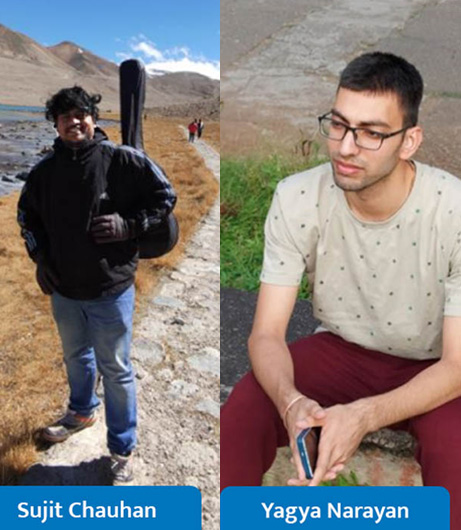Sujit: During my free time, I enjoy playing the guitar, watching web series on various streaming platforms, reading books, and listening to economics, psychology, and philosophy podcasts. I also enjoy spending time in nature, such as going for a short hike, trekking, and simply sitting by the beach. I have recently developed a fascination for exploring different varieties of coffee and green teas and observing how they affect my productivity levels. That’s where I have the most amount of fun 😊 😊
Yagya: For fun and personal enrichment, I have a couple of hobbies that play a significant role in enhancing my educational focus. Firstly, I have a deep love for instrumental music, particularly listening to various genres and exploring the nuances of different compositions. I am also a piano player and I love to play existing beautiful melodies. Engaging with instrumental music helps me develop a sense of attentiveness and concentration, as it requires actively listening to the intricate melodies, harmonies, and emotional nuances conveyed through the music. This practice of focused listening translates into my educational pursuits, where I apply the same level of concentration and attention to detail when studying complex topics or analysing research materials. Moreover, music also stimulates my creativity and inspires me to approach problems or projects from fresh perspectives, fostering innovative thinking in my academic work.
Swimming is another hobby that significantly contributes to my physical fitness. Once in a while, swimming sessions provide a much-needed physical outlet and help me maintain a healthy balance between my mind and body. Engaging in physical exercises, such as swimming, enhances my overall well-being and boosts my energy levels, thereby increasing my ability to concentrate and stay focused during my academic endeavours. Swimming also serves as a stress reliever, allowing me to clear my mind and approach my educational tasks with a refreshed perspective.









